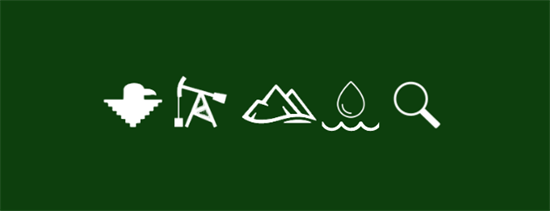Press Release
Biden Admin Announces Rule Impacting Sportsmen's Fishing, Hunting Access
WASHINGTON, D.C.,
June 22, 2023
|
Committee Press Office
(202-225-2761)
Today, the U.S. Fish and Wildlife Administration (USFWS) announced a rule to ban the use of lead ammunition and tackle in eight national wildlife refuges. House Committee on Natural Resources Chairman Bruce Westerman (R-Ark.) released the following statement in response: "Some of my earliest memories are of hunting and fishing across Arkansas, and I know millions of Americans share similar stories. Access to these lands and waters is a pivotal part of everyday life. Clearly the Biden administration feels differently. We just passed a bill out of committee yesterday that would continue allowing traditional ammunition and tackle to be used on federal lands, and now the USFWS is attempting to create blanket bans in several states. The cost of alternative forms of ammunition and tackle is multiple times higher than traditional lead. As this proposed rule brings an increase in cost for sportsmen and women, we can inevitably expect a decrease in the number of individuals who can afford to enjoy the outdoors. Hunters and anglers are without question the Americans with the greatest interest in conservation and they contribute millions of dollars to conservation efforts each year. I will continue to work on Capitol Hill to protect their access to our nation's lands and waters." Background Today, USFWS proposed a rule to ban the use of lead ammunition and tackle by 2026 in seven specified national wildlife refuge (NWR) areas: Blackwater NWR in Maryland, Chincoteague NWR in Virginia and Maryland, Eastern Neck NWR Maryland, Erie NWR in Pennsylvania, Great Thicket NWR in Maine, Patuxent Research Refuge in Maryland, Rachel Carson NWR in Maine and Wallops Island NWR in Virginia. In addition, lead ammunition, but not tackle, would be banned in the Chincoteague NWR in Virginia and Maryland. Outdoorsmen and women are excellent stewards of the environment and are participating in activities that seek to benefit the health of wild game species. Additionally, revenues generated from hunting and fishing activities result in billions of dollars in conservation funding each year. The Pittman-Robertson Wildlife Restoration Act and Dingell-Johnson Act require that the sale of hunting and fishing equipment have an excise tax attached to it that is paid by manufacturers and, ultimately, consumers. In Fiscal Year 2023, U.S. Fish and Wildlife Service received a combined $1.6 billion for wildlife conservation through these excise taxes. Increasing costs on these consumers could result in a substantial decrease in hunting and fishing participation and conservation funding. H.R. 615, the Protecting Access for Hunters and Anglers Act of 2023, was favorably reported out of committee with bipartisan support on June 21, 2023 and would require that any proposed lead ban at a NWR be compatible with state law and based on scientific evidence related to the specific NWR. To learn more, click here. |
Newsletter Sign Up
Sign up to receive news, updates and insights directly to your inbox.

